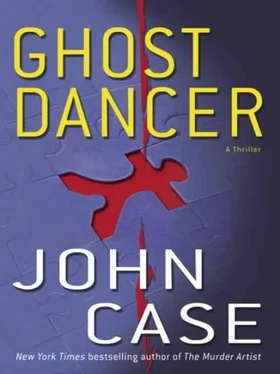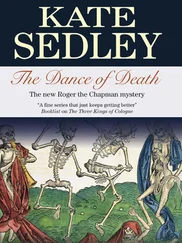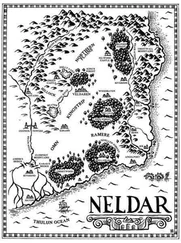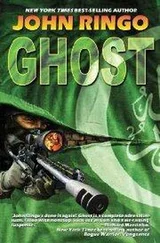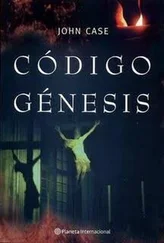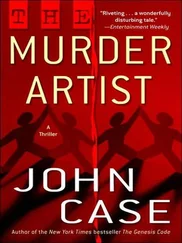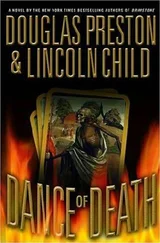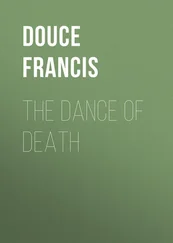Once he told Kovalenko what he’d learned, that a crazy ex-con from Stanford was planning to do God knows what with a 100-year-old “invention” that never worked in the first place – or never worked properly – it was all over.
However you looked at it, Thomas Aherne & Associates would not be reopening anytime soon.
“Best is not good enough,” Ceplak said. The expression in the old man’s eyes was grave. “Tunguska was half million acres in Siberia. Pine trees, reindeer, a few nomads. But…” His voice trailed away.
“But what?” Burke asked.
“I’m asking you: How big is Manhattan?”
JUNIPER, NEVADA | APRIL 29, 2005
Wilson found it on the Internet, two weeks after he arrived in the States from Liechtenstein.
“A little piece of Paradise,” the B-Lazy-B was embedded in the Humboldt-Toiyabe National Forest, a discontinuous conglomerate of California and Nevada lands, comprising a vast wilderness of mountains and deserts, forests and meadows.
The ranch – its emblem consisting of one “B” standing at attention, and the second “B” snoozing on its back – had been created as a religious retreat in 1921. A back-to-nature movement had captured the imagination of Americans, who were beginning to question the direction in which industrialization was leading them. The wilderness was suddenly seen as a place where spiritual and physical renewal might be found.
With its big main house and a dozen spartan cabins, it had housed generations of Baptists on retreat. All was well until the 1940s, when the sect’s accounts were looted by an evangelist with a green eyeshade, who then disappeared in the direction of Brazil. The bank foreclosed, and the retreat was sold to a Russian émigré, who’d always dreamed of owning a dude ranch.
With the dudes came electricity, and against all odds, both the ranch and the émigré prospered for years. A fifteen-hundred-watt diesel generator was brought in to eliminate the inconvenience of frequent power outages. To accommodate the generator and provide for the ranch’s use in winter, underground storage tanks were installed to hold fuel and propane.
Eventually, the émigré suffered a midlife crisis, and decamped for Key West.
Soon afterward, the B-Lazy-B was sold to a dotcom mogul, who spent a small fortune refitting the rustic main house with Arts & Craft fixtures, Sub-Zero appliances, and a Viking stove. A tennis court was put in next to the bunkhouse, which now sported Poggenpohl cabinets and a glass-and-marble shower. Even the hot springs were gussied up, transformed from a single bubbling pool to a stone-lined spa, consisting of three smaller pools whose temperatures ranged from cool to very hot.
Once again, all was well until the NASDAQ crashed in 2001. Suddenly incompatible, the mogul and his much younger wife parted ways, and the ranch went up for sale. Unhappily for the mogul, it did not prove to be an easy sell. The dudes and the Baptists were long gone, as were a lot of millionaires who might have been interested in the ranch as a “collectible.”
In their absence, the B-Lazy-B came to be seen for what it was – which was “almost impossible to get to.” Though it had a helipad, it did not have a runway. To reach it, one needed a helicopter, a horse, or an off-road pickup truck with two spare tires and a winch. Even then, you really had to want to get there. From the nearest town, the B-Lazy-B was a bone-rattling forty-five-mile journey over dirt roads that twisted through the middle of nowhere to the far edge of that same place.
The ranch remained on the block for nearly two years, its asking price dwindling from four to three to two million dollars. Eventually, Wilson bought it for a million-six, putting ten percent down and arranging a mortgage with the same bank that held his shares of Roche.
No sooner was the ink dry on the contract than he began to lay in supplies, including enough propane to keep him warm for years, and enough diesel to run the generators – a collection of models, all built before 1975 – nonstop until the Rapture. An air cargo company, based in Sparks, delivered most of what he needed, including massive spools of electrical cable and bundles of iron rebar.
Not surprisingly, people began to talk. Specifically, they began to talk in the Bucket of Blood Saloon “in nearby Juniper,” some sixty-three miles away. Seated around a card table playing Hold ’Em, a posse of locals chased shots of whiskey with glasses of beer. An aging hippie prospector, who called himself “the Bat,” was the first to raise the issue: “Whut the fuck’s he doin’ up there?”
The cowboy in the next chair, who happened to be a fan of singer Tom Waits, grinned. “Yeah, what’s he building up there?” The allusion went unnoticed.
Standing at the bar, a Ufologist named Vaughn Stein, who’d driven down from Provo looking for what he called “Area 52,” chuckled knowingly. “I heard he’s one of them dudes that stares at goats.”
The Bat frowned. “Say whut?”
“At Fort Bragg?” the Ufologist said. “They kill goats, just by starin’ at ’em.”
Groans of skepticism rose up.
In a corner of the saloon, a fertilizer salesman called “Pilgrim” was feeding quarters into a slot, and pulling away at the arm. “Bullshit!” he cried, without turning his head or breaking his rhythm. “If that guy’s doing anything, he’s mining. Probably found himself a lode of silver-”
“Or uranium,” the Bat suggested. “What I hear-”
“You don’t hear shit,” said the bartender, pouring himself a shot of Drambuie. “His name’s Wilson, and he isn’t doing any mining.”
The card players turned. When the bartender talked, they listened. He was a sensitive man who sometimes closed early if he sensed that people were ignoring him.
“Well, if he’s not mining, what’s he up to?” the Bat demanded.
The bartender smacked his lips. “Well,” he said, “he’s like, an eccentric.”
The Bat gave him a raspberry, as if to say, Tell us something we don’t know.
“Got himself some vintage motorcycles,” the bartender went on. “Couple of Indians… one of them Norton Shadows.”
“That’s a hobby, ” the Ufologist declared. “That doesn’t tell us what he’s doing !”
The bartender looked at him. “Ain’t no secret,” he announced. “He’s stargazing.”
Pilgrim froze. With an exaggerated look of incomprehension, he turned from the one-armed bandit and said, “He’s what?”
The bartender rubbed the bar in front of him with a dirty cloth. After a moment, he looked up. “I was talkin’ to Chopper Charley? Down in Sparks?”
“The helicopter guy,” said the Bat.
“Right,” said the bartender.
“He’s crazy as shit,” von Stein laughed.
“Be that as it may,” the bartender told them, “ he tells me he’s flyin’ in all kinds of crap to that ranch.”
“Like what?” the Ufologist asked, his voice thick with suspicion.
“Rebar, springs-”
“Springs?” Pilgrim asked. “You mean like… spring springs?”
The bartender nodded. “Big ones. Industrial ones, size of fifty-five-gallon cans.”
“What the fuck’s he gonna do with that?” the Bat demanded.
“I already told you,” the bartender replied. “It’s for stargazin’.” By now, his customers were staring at him. None of them knew what he was talking about, which was just the way he liked it. Finally, the bartender heaved a sigh, and explained: “That’s why he’s out here.” With a nod toward the ceiling, which was yellow with the accreted smoke of a million cigarettes, he said, “No light pollution. On account of we’re so remote.”
Читать дальше
